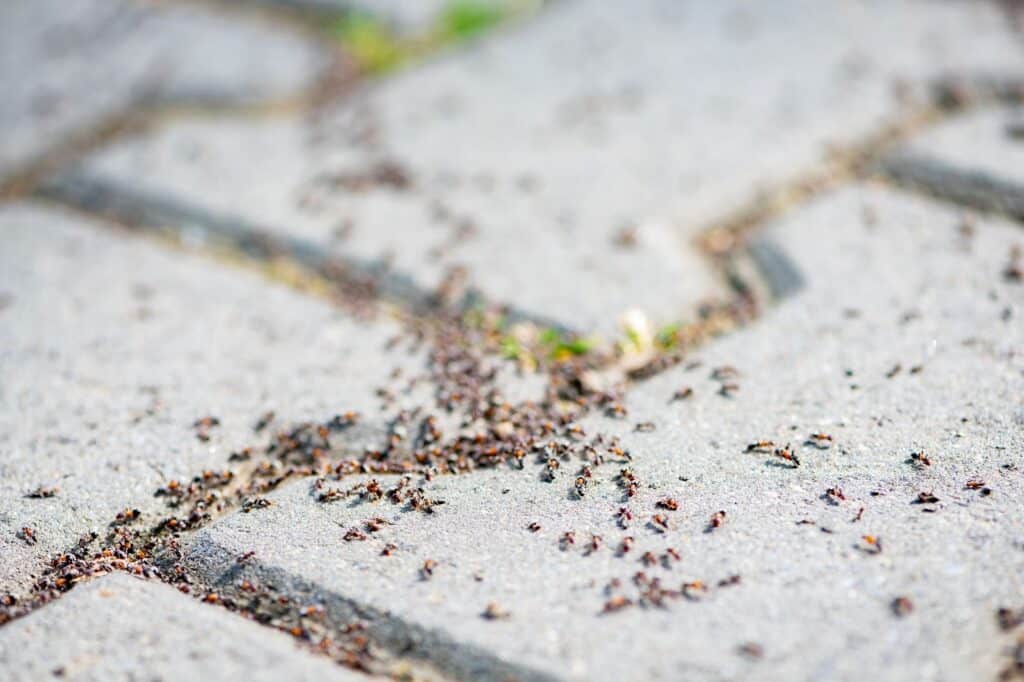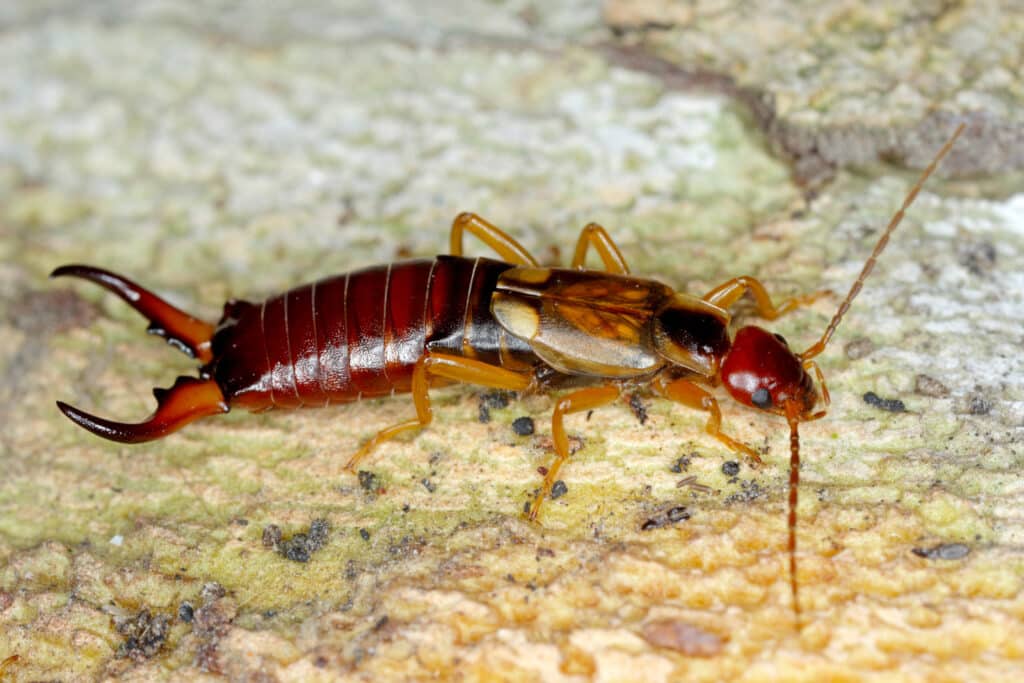Springtime in Northern Colorado: The Season of Pests
Spring in Northern Colorado is a breath of fresh air, and as homeowners welcome the return of blooming flowers, longer days, and higher temperatures. Unfortunately, homeowners aren’t the only ones celebrating the return of warm weather—so are the bugs, rodents, and all manner of other pests that come out of dormancy and look for ways to access the food and shelter within your home.
Some of these invaders may just be a nuisance, but others can be quite invasive, threatening to contaminate food or even posing health risks. Knowing how to manage these pests early can prevent an infestation. But when should you try DIY methods, and when is it time to call in a professional?
From Bug Control Specialist, Northern Colorado’s expert pest control team, here’s a breakdown of the most common spring pests in our area, some tips on how to handle them, and when to get backup from our experienced pest control team.
Common Spring Pests in Northern Colorado
Ants

- Common Types: Carpenter ants, pavement ants, odorous house ants
- Why They’re a Problem: Some ants (like carpenter ants) can damage wood structures, while others invade kitchens in search of sweets and crumbs.
- DIY Prevention:
- Keep food sealed in airtight containers.
- Put out standard bait traps (if necessary, be sure to use ones that are safe for kids and pets)
- Wipe down countertops and sweep floors daily to eliminate crumbs.
- Seal cracks around windows, doors, and baseboards using caulk.
- Use a 1:1 vinegar and water solution to wipe down surfaces—ants dislike the smell.
- Place bay leaves or cinnamon near entry points; ants avoid these scents.
- When to Call for Help: If you see carpenter ants inside or notice sawdust-like debris near wooden structures, you might have a nest and need ant control services. Persistent ant trails that return despite DIY methods also signal a deeper problem.
Spiders
- Common Types: Black widows, wolf spiders, house spiders
- Why They’re a Problem: While most spiders are harmless and even beneficial, black widow bites can be dangerous. Large populations of spiders suggest an underlying insect issue.
- DIY Prevention:
- Reduce clutter in basements, garages, and closets where spiders like to hide.
- Use essential oils like peppermint or eucalyptus—spraying these near entry points can deter spiders.
- Shake out shoes and clothing before wearing them if stored in dark areas.
- Keep outdoor lights off when not needed—lights attract insects, which in turn attract spiders.
- When to Call for Help: If you see black widows frequently or just have an excessive spider presence inside your home, it’s time for professional treatment.
Rodents (Mice & Rats)
- Why They’re a Problem: Mice and rats spread disease, contaminate food, and chew wires, creating fire hazards.
- DIY Prevention:
- Store food (including pet food) in sealed metal or glass containers.
- Set snap traps in areas where droppings or gnaw marks are found.
- Stuff steel wool into small holes before sealing them with caulk—rodents can’t chew through it.
- Keep firewood and debris piles at least 20 feet away from your home.
- Use peppermint oil-soaked cotton balls in potential entry points—rodents dislike the smell.
- When to Call for Help: If you hear scratching in the walls, find droppings, or see signs of nesting, you likely have an infestation requiring expert help.
Earwigs

- Why They’re a Problem: While mostly harmless, earwigs can be a nuisance and unsettling in large numbers, especially in damp areas.
- DIY Prevention:
- Keep mulch, leaves, and wood piles away from your home’s foundation.
- Fix leaky pipes and improve ventilation to reduce moisture in basements and bathrooms.
- Use rolled-up damp newspaper as a trap—earwigs will gather inside overnight, and you can dispose of them in the morning.
- Apply diatomaceous earth around entry points—it dehydrates and kills earwigs.
- When to Call for Help: If earwigs are consistently appearing indoors, especially in large numbers, professional treatment can tackle a full-blown infestation.
Boxelder Bugs & Stink Bugs
- Why They’re a Problem: These pests invade homes in large numbers and while they pose no real threat, they can be difficult to manage in large numbers.
- DIY Prevention:
- Seal cracks around doors, windows, and vents with weatherstripping or caulk.
- Install fine-mesh screens on windows and attic vents.
- Vacuum up bugs instead of crushing them—stink bugs release a foul odor when squashed.
- Spray soapy water directly on stink bugs to kill them on contact.
- Remove boxelder trees from your property if annual infestations are severe.
- When to Call for Help: If you’re seeing large groups of these pests inside your home every spring, professional exclusion treatments can help.
When to Call for Professional Pest Control
While DIY prevention can help with minor pest problems, certain situations require professional pest control. Here are some clear signs it’s time to call in the experts:
- Pests Keep Coming Back – If you’ve tried sealing cracks, cleaning up food, and setting traps but still see pests, you likely have an infestation that needs professional treatment.
- Structural Damage – Evidence of chewed wires, gnawed wood, or holes in walls is a serious sign that pests are causing costly damage.
- Health Concerns – Bites, allergic reactions, or respiratory issues linked to pest droppings mean you should seek expert help immediately.
- You’re Seeing More Pests Than Usual – A sudden increase in insect or rodent activity means pests are breeding or have found a food source in your home.
- You’re Not Sure What You’re Dealing With – If you’re finding strange droppings, damage, or insects you can’t identify, a professional can assess the situation and provide a solution.
Call Bug Control Specialist for Springtime Pest Solutions
Spring should be about enjoying the season—not battling pests. If you’re dealing with persistent ants, spiders, rodents, or other invaders in Northern Colorado, Bug Control Specialist is here to help.
Our expert team provides thorough inspections, eco-friendly pest control solutions, and long-term prevention strategies to keep your home pest-free all season long. Contact Bug Control Specialist today for a free consultation!
